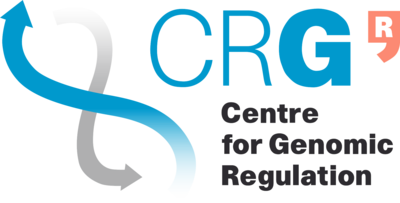Difference between revisions of "Main Page/Front"
| Line 26: | Line 26: | ||
=== LAST REQUESTS === | === LAST REQUESTS === | ||
| + | |||
| + | {{#ask: [[Category:Requests]] | ||
| + | | ?BC Request Principal Investigator=Principal Investigator | ||
| + | | ?BC Request Status=Status | ||
| + | | format=table | ||
| + | }} | ||
{{#formlink:form=Request|link text=Submit a request|button|query string=}} | {{#formlink:form=Request|link text=Submit a request|button|query string=}} | ||
Revision as of 16:03, 13 September 2010
The Centre for Genomic Regulation (CRG) is a centre for basic research created in December 2000 and located in the Biomedical Research Park (PRBB) building. CRG's objective is to promote basic research in biomedicine and, particularly, in genomics, proteomics and systems biology.
In this context, the Bioinformatics Core Facility aims to provide researchers at CRG, PRBB, and other external institutions with services of consultation, data analysis and management, software development, and access to computing resources. As further important commitment, the core will periodically organize courses and workshops in order to train biologists on the implementation of the main bioinformatics tools in their research.
The team, coordinated by Guglielmo Roma, currently comprises five members and is open to all researchers at the PRBB and also to external users anywhere in the world. For further information please see contact details.
SERVICES
The main goal of the unit is to set up a collaborative environment within CRG/PRBB and contribute to research projects providing support to scientists on several bioinformatics aspects.
Basic services
- Consultation on bioinformatics methods and resources
- Software evaluation, implementation, and training
- Customization of bioinformatics resources
Advanced services
- High-throughput data analysis of genomics, transcriptomics, and proteomics datasets
- Downstream analysis for the interpretation of gene lists, including gene set enrichment and over-representation of biological functions using Gene Ontology terms;
- Identification of functional genomics elements, such as genes and regulatory sequences, through comparative genomics approaches;
- Construction of ad-hoc databases and web interfaces to allow systematically storage, management, analysis, and search of biologically relevant information;
- Development of bioinformatics scripts and more advanced pipelines to automate sequence analyses and genome annotation tasks
The unit will be also focused on the education of biologists in the analysis and interpretation of their experimental data through the provision of custom advice and training in bioinformatics as well as in the acquisition of basic programming skills.
